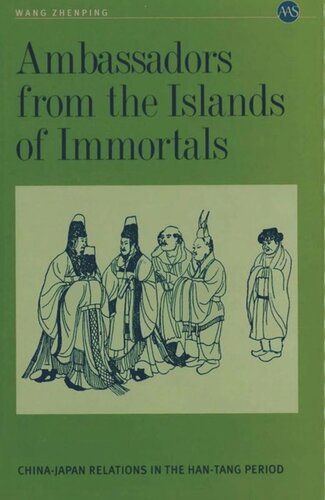

Most ebook files are in PDF format, so you can easily read them using various software such as Foxit Reader or directly on the Google Chrome browser.
Some ebook files are released by publishers in other formats such as .awz, .mobi, .epub, .fb2, etc. You may need to install specific software to read these formats on mobile/PC, such as Calibre.
Please read the tutorial at this link: https://ebookbell.com/faq
We offer FREE conversion to the popular formats you request; however, this may take some time. Therefore, right after payment, please email us, and we will try to provide the service as quickly as possible.
For some exceptional file formats or broken links (if any), please refrain from opening any disputes. Instead, email us first, and we will try to assist within a maximum of 6 hours.
EbookBell Team

4.1
80 reviewsUsing recent archaeological findings and little-known archival material, Wang Zhenping introduces readers to the world of ancient Japan as it was evolving toward a centralized state. Competing Japanese tribal leaders engaged in "ambassador diplomacy" and actively sought Chinese support and recognition to strengthen their positions at home and to exert military influence on southern Korea. They requested, among other things, the bestowal of Chinese insignia: official titles, gold seals, and bronze mirrors. Successive Chinese courts used the bestowal (or denial) of the insignia to conduct geopolitics in East Asia.
Wang explains in detail the rigorous criteria of the Chinese and Japanese courts in the selection of diplomats and how the two prepared for missions abroad. He journeys with a party of Japanese diplomats from their tearful farewell party to hardship on the high seas to their arrival amidst the splendors of Yangzhou and Changan and the Sui-Tang court. The depiction of these colorful events is combined with a sophisticated analysis of premodern diplomacy using the key concept of mutual self-interest and a discussion of two major modes of diplomatic communication: court reception and the exchange of state letters. Wang reveals how the parties involved conveyed diplomatic messages by making, accepting, or rejecting court ceremonial arrangements. Challenging the traditional view of China’s tributary system, he argues that it was not a unilateral tool of hegemony but rather a game of interest and power in which multiple partners modified the rules depending on changing historical circumstances.